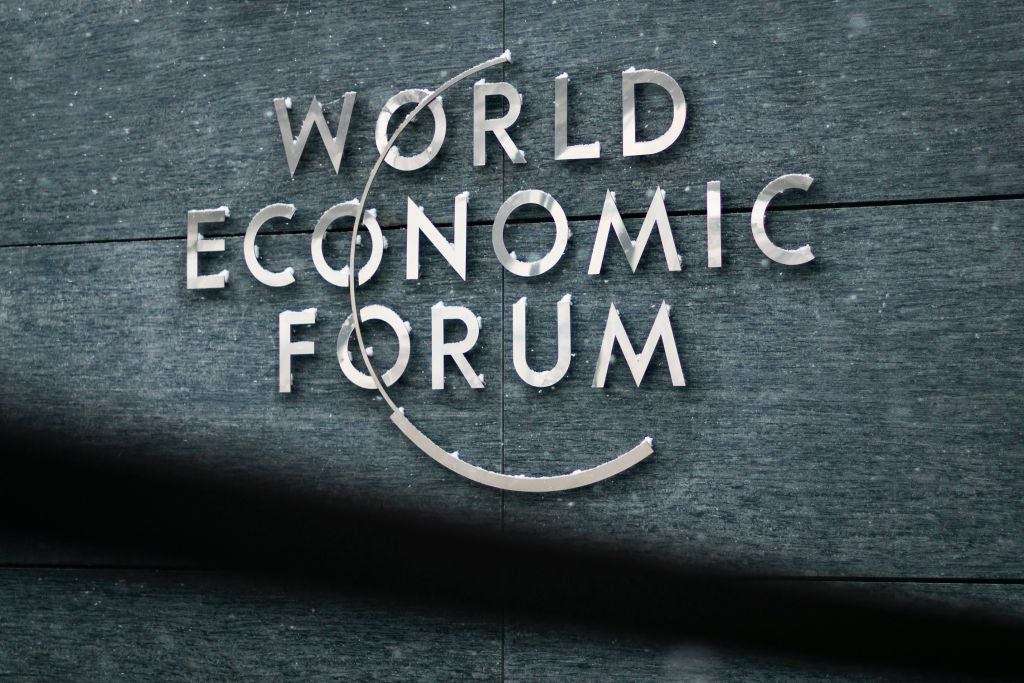
Climate risks dominate global concerns even as the world enters the third year of the Covid-19 pandemic, according to the World Economic Forum‘s (WEF) Global Risks Report 2022. While the top long-term risks relate to the climate crisis, the most prominent shorter-term concerns include societal divides, livelihood crises and mental health deterioration. Additionally, most experts believe a global economic recovery will be volatile and uneven over the next three years.
The Global Risks Report 2022 presents the results of the latest WEF Global Risks Perception Survey (GRPS), followed by an analysis of key risks emanating from current economic, societal, environmental and technological tensions.

Discover B2B Marketing That Performs
Combine business intelligence and editorial excellence to reach engaged professionals across 36 leading media platforms.
“Health and economic disruptions are compounding social cleavages,” said WEF managing director Saadia Zahidi in a press release. “This is creating tensions at a time when collaboration within societies and among the international community will be fundamental to ensure a more even and rapid global recovery. Global leaders must come together and adopt a coordinated multi-stakeholder approach to tackle unrelenting global challenges and build resilience ahead of the next crisis.”
Respondents feel gloomy about the future
Asked to take a view of the past two years, respondents to the GRPS stated that they perceive societal risks – in the form of “social cohesion erosion”, “livelihood crises” and “mental health deterioration” – as those that have worsened the most since the Covid-19 pandemic began.
Furthermore, only 16% of respondents said they feel positive and optimistic about the outlook for the world, and just 11% believe the global recovery will accelerate.
Most respondents instead expect the next three years to be characterised by either consistent volatility and multiple surprises or fractured trajectories that will separate relative winners and losers.

US Tariffs are shifting - will you react or anticipate?
Don’t let policy changes catch you off guard. Stay proactive with real-time data and expert analysis.
By GlobalDataDuring a press conference on 11 January to present the report, Zahidi added: “It is very clear that this confluence of all of the factors that have come together, all of the challenges that we are currently facing, are leading to a fairly pessimistic outlook: 84% of the people that responded to the survey said that they were either worried or concerned about the outlook for the world, with less than 4% optimistic.”
Climate change the most worrying risk
For the next five years, respondents signalled societal and environmental risks as the most concerning. However, over a ten-year horizon, the health of the planet dominated concerns: environmental risks are perceived to be the five most critical long-term threats to the world, as well as the most potentially damaging to people and planet, with “climate action failure”, “extreme weather events” and “biodiversity loss” ranking as the top three most severe risks, as shown in the graph above.
Respondents also signalled “debt crises” and “geoeconomic confrontations” as among the most severe risks over the next ten years.
Looming debt crisis and societal risks
In the shorter term and within the economic realm, “debt crises” were identified as an imminent threat to the world for the next two years, but GRPS respondents believe they will reach their most critical point in three to five years.
“Asset bubble burst” and “debt crises” were the two main economic concerns of respondents, but no economic risks featured within the top ten risks identified by respondents in the longer term of between five and ten years, when environmental, societal, geopolitical and technological risks are the most concerning for respondents.
Connectivity blind spots also a risk
Within technological risks, “digital inequality” is seen as an imminent threat to the world as three billion people remain offline, according to the report.
However, it is also the case that many countries and industries were able to quickly access and seamlessly adapt to new forms of human interaction and remote work, the report added.
On the other hand, this digital leap came with increased vulnerability. GRPS respondents believe “cybersecurity failure” will continue to test the world’s digital systems over the next two years and, to a lesser extent, in the next three to five years. No technological risk appears among the most potentially severe for the next decade. This suggests lower relevance to respondents – or a blind spot in perceptions given the potential damage of cyber risks – compared with economic, societal and environmental concerns, according to the report's interpretation of the results.
When asked during the press conference about the overall lack of substantial action towards the risks featured in the report – and whether these kinds of reports lead to any impactful changes – WEF president Børge Brende highlighted the importance of reports such as the Global Risks Report 2022 in bringing attention to risks such as the climate crisis.
“We are close to a situation where almost 80% of all the global emissions are part of a commitment towards net zero," he said. "Only five years ago, there was less than 20% of the global emissions that were part of net-zero planning. So I would say that the risk report and other reports are really showing that the cost of inaction far exceeds the cost of action, [and this] is having an impact. So we are seeing political relevance, not as fast and not as deep as we would have liked, but we are moving in the right direction.”



